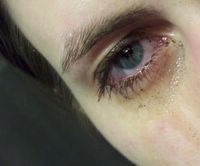Authoritative sites for health information

American Academy of Family Physicians - A very good site with health information and health tools
Centers for Disease Control and Prevention - U.S. national health statistics and public health information
ClinicalTrials.gov - A place to find clinical trials funded by the National Institutes of Health. Participation is free for those trials which are actually conducted at the National Institutes of Health
Dr. Koop - A good site for general health information
HealthWeb - An alphabetical directory leading to a wide variety of health information topics
Mayo Clinic Health Information
Medicine Net - Health information and news, written by doctors
National Institutes of Health
Medline Plus Health Information from the National Library of Medicine
Oral Health - The American Dental Hygienist Association's site. See also links at the National Institutes of Health site to the National Institute of Dental and Craniofacial Research
Pediatric Health Information - Also, see the National Institutes of Health site and the Healthweb site
Senior Health - Information from the National Institutes of Health
Teen Health - Also, see the National Institutes of Health site
WebMD - Health information and news
Virtual Hospital - A digital library of health information
Women’s Health - Extensive information on women's health at the United States Government's site for The National Women's Health Information Center
World Health Organization - Includes information on travel health











